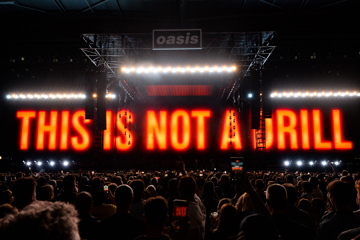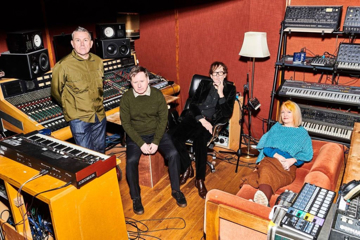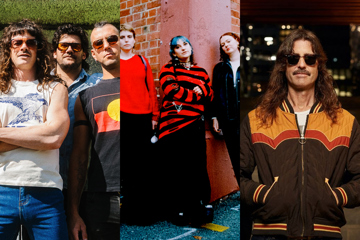'I Can’t Stand Anything With Hand Claps'
No hand claps, cowbells or saxophones "if they’re not played by Africans.”
A directive comes from Sinéad O’Connor’s management that questions about Miley Cyrus and mental illness are off limits. Her voice is seriously croaky come interview time, to the point where she probably hasn’t spoken yet, and O’Connor admits, “I’m half asleep. I just woke up. Anyway, go on.”
O’Connor’s lilting Irish accent has become increasingly prevalent in her singing voice over the years and truly shines throughout her latest, tenth full-length I’m Not Bossy, I’m The Boss. According to O’Connor, this is something she prioritised going into recording her fourth album Universal Mother (1994). “I went back to Ireland and studied a method of singing with a particular teacher, and went every day for, like, a year or two,” she remembers. “[As] a method it’s called Bel Canto and one of the sort of strong tenets of that is that you sing in your own accent.”
So does O’Connor feel, at this stage in her career, that she’s surrounded by people who treat her like she’s the boss? “Yeah, I think so,” she ponders. “I mean, there can be accidental slip-ups or whatever but, I guess I’m in the situation where I’m surrounded by people who I respect enough and who respect me [so] that we’re all the boss. And what I mean by that is management. Like, your record company are never the boss, you know what I mean?”
“And they always use ones where you’re really fat,”
She supplied guest vocals for three songs on Massive Attack’s 100th Window album and O’Connor reveals, “They gave me the backing tracks maybe six months before, and then I wrote lyrics and melodies, and then we went to the studio.” “My favourite way of writing songs is if people give me a piece of music ‘cause I don’t really play an instrument,” she continues. “I play guitar, but I can’t play it well enough to really expand as a songwriter as such. The first way I wrote a song is somebody giving me a piece of music, you know.” On whether there have been many occasions where she’s rejected compositions, O’Connor says, “Yeah, I mean I can’t stand anything with hand claps. I just can’t hear the track or think of anything.” Anything else O’Connor would care to add to her no-go zone list for future collaborators? “Hand claps, cowbells or saxophones if they’re not played by Africans,” she replies instantly.
We discuss the tendency for television interviews to be preceded by a video package containing perceived ‘highlights’ from an artist’s career, often with the subject’s reactions captured in a corner of the screen for viewers to scrutinise live. “And they always use ones where you’re really fat,” O’Connor laments. “You get used to it. It’s just part of what you do. I’ve been doing it for 30 years like, so it’s nothin’. You’re sittin’ there going, ‘Oh, god, what a horrible dress,’ or, ‘Oh god I’m singing in that terrible American accent.’” Before the presenters swing their attention her way, O’Connor provides some insight into what’s on her mind: “Usually you’re probably thinking about some bloke, or something else or, you know: when am I gonna get laid?’”







